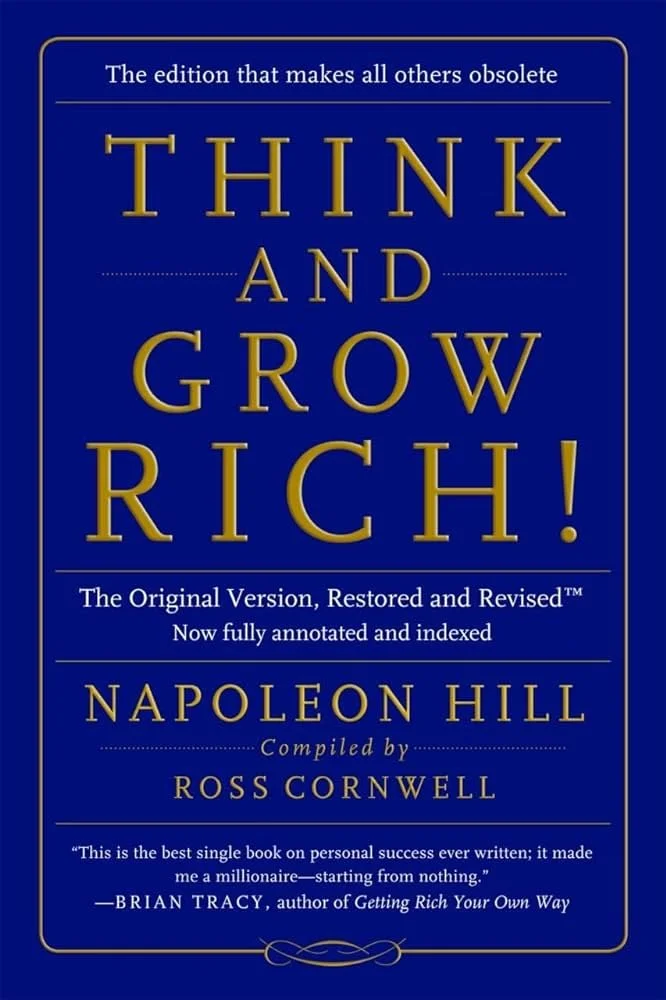10 Major Teachings from Rich Dad, Poor Dad (What to Avoid)
Rich Dad, Poor Dad by Robert Kiyosaki has become a cornerstone of personal finance education, as it teaches powerful lessons on wealth creation and financial independence. The book contrasts the differing financial philosophies of Kiyosaki's "Rich Dad" and "Poor Dad," providing readers with actionable insights into how the wealthy think and operate differently from the average person. However, beyond the positive lessons, it's equally important to understand what to avoid—those pitfalls and misconceptions that can hinder financial growth. Below we’ve highlighted some of the major teachings from Rich Dad, Poor Dad and the key mistakes to steer clear of.
Avoid Relying Solely on a Single Source of Income: One of the book's primary teachings is the importance of diversifying income streams. "Poor Dad" believed in working a stable job for income, whereas "Rich Dad" emphasized creating multiple sources of income through investments, real estate, and businesses.
What to Avoid: Don’t fall into the trap of relying solely on your paycheck. A single source of income, no matter how stable, can be risky. Unexpected job loss, economic downturns, or health issues can significantly impact your financial security. Instead, focus on building other income streams that can support you on the side.
Avoid Viewing Your Home as an Asset: Kiyosaki challenges the conventional wisdom that owning a home is the ultimate financial goal. He argues that while a home can be an emotional asset, it’s not necessarily a financial asset because it doesn’t generate income and often incurs ongoing expenses.
What to Avoid: Don’t assume that just because you own a home, you’re financially secure. Your home is not an income-generating asset unless you’re using it for rental income. Be mindful of the costs associated with homeownership, including maintenance, taxes, and mortgage payments, and don’t let your home be the only significant investment you make.
Avoid Thinking That Higher Education Guarantees Financial Success: "Poor Dad" placed a strong emphasis on formal education as the path to success, while "Rich Dad" valued financial education more. While education is important, Kiyosaki highlights that many highly educated people still struggle financially because they lack financial literacy.
What to Avoid: Don’t rely solely on formal education to secure your financial future. Understand that financial success requires more than just academic knowledge; it demands financial literacy. Invest time in learning about money management, investments, and how to make your money work for you.
Avoid Accumulating Liabilities Instead of Assets: A significant takeaway from Rich Dad, Poor Dad is the distinction between assets and liabilities. Kiyosaki’s "Rich Dad" teaches that true wealth is built by accumulating assets—things that put money in your pocket—while liabilities take money out.
What to Avoid: Avoid spending on liabilities that drain your finances, such as expensive cars, luxury goods, and other non-essential items that depreciate in value. Focus on acquiring assets like stocks, bonds, real estate, and businesses that generate alternative income and appreciate over time.
Avoid the Fear of Failure: The "Poor Dad" mindset involves a fear of failure, leading to risk aversion and missed opportunities. In contrast, "Rich Dad" encourages taking calculated risks and learning from mistakes.
What to Avoid: Don’t let the fear of failure paralyze you. Avoid playing it too safe when it comes to financial decisions. While it’s important to be prudent, remember that growth often comes from taking risks and learning from the outcomes, whether they are successes or failures.
Avoid Working for Money Without Making Money Work for You: "Rich Dad" teaches that the wealthy work to learn and grow, not just to earn a paycheck. The focus is on making money work for them through investments and business ventures, rather than exchanging time for money indefinitely.
What to Avoid: Avoid the mindset of working solely for a paycheck. Instead, work to gain knowledge, skills, and experience that you can leverage to create income-generating assets. The goal is to reach a point where your money is working for you, generating income without constant day to day active effort.
Avoid Neglecting Financial Education: Kiyosaki emphasizes the importance of continuous learning, particularly in financial education. The more you understand about money, investments, and the economy, the better equipped you are to make informed decisions.
What to Avoid: Don’t neglect your financial education. It’s easy to get complacent or overwhelmed, but staying informed and continually learning about finance is very important for long-term success. Read books, attend seminars, and seek out mentors who can help you expand your financial knowledge.
Avoid Following the Crowd: "Rich Dad" advises against following the conventional wisdom or doing what everyone else is doing. The wealthy often make decisions that seem counterintuitive to the average person but are based on a deep understanding of financial principles.
What to Avoid: Avoid the herd mentality when it comes to financial decisions. Just because everyone is buying a certain stock, investing in a particular market, or spending on certain luxuries doesn’t mean it’s the right choice for you. Make decisions based on your own research, risk tolerance, and financial goals.
Avoid Ignoring Tax Strategies: One of the book's insights is the importance of understanding and using tax laws to your advantage. "Rich Dad" knew how to leverage legal tax strategies to keep more of his money, while "Poor Dad" paid the maximum amount of taxes.
What to Avoid: Don’t ignore tax planning. Understanding how taxes work and using them to your advantage can significantly impact your wealth-building efforts. Consider consulting with a tax professional to explore strategies like tax-deferred investments, deductions, and credits that can reduce your tax burden.
Avoid Believing That You Can’t Achieve Wealth: One of the subtle but powerful lessons from Rich Dad, Poor Dad is the importance of mindset. "Poor Dad" believed that wealth was unattainable, while "Rich Dad" believed in the possibility of achieving financial freedom with the right knowledge and actions.
What to Avoid: Don’t let limiting beliefs hold you back. Avoid the mindset that wealth is only for a select few or that you are destined to struggle financially. With the right mindset, education, and strategies, anyone can improve their financial situation and work towards financial independence.
To Sum It Up
Rich Dad, Poor Dad offers invaluable lessons for those seeking financial freedom, but it’s equally important to recognize and avoid the pitfalls that can derail your progress. Being aware and steering clear of these common mistakes can help anyone set themself on a path to financial success and long-term wealth. Remember, wealth-building is a journey that requires discipline, education, and a willingness to challenge conventional wisdom. Make smart decisions, invest in your financial education, and always strive to make your money work for you.
All the best in your wealth creation journey!





























